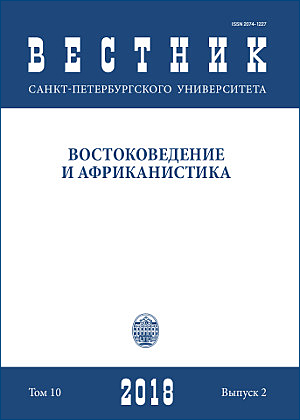The Berber question and the self-identity problem of the North African indigenous population in the context of contemporary Algerian society
DOI:
https://doi.org/10.21638/11701/spbu13.2018.209Abstract
The Berber question in Algeria, which history goes back to the colonial period, now draws increasing attention to itself. The international media, illuminating the Berber question, inclines to conclusions about the real danger of a split in the society and the possible secession of some regions with high Berber population density. The article reviews the reasons for the occurrence of the ideas of Berber regionalism and autonomism. It also estimates the risks of such events for the integrity of contemporary Algerian society. The author analyzes the degree of disunity of modern Algerian society on the basis of the national-ethnic principle and comes to the conclusion that the Algerian society is sufficiently consolidated. The Berber identity today is built on the attitude to the general social and economic problems existing in remote regions. The author suggests that the Berber issue aggravation is connected with the desire of the Algerians to draw the authorities’ attention to the problem of marginalization of the country’s peripheral regions. The author concludes that the radical manifestations of Berberism, such as, in particular, Kabylian Autonomism and Separatism, are assessed as a threat to the integrity of the modern Algerian state not only by the Algerian authorities but also by the general public. At the same time, the Berber question in its broadest sense meets tolerance and sympathy in the Algerian society. In this article, we used the scientific literature in the Russian, European and Arabic languages, as well as Algerian media sources of recent years.
Keywords:
Berbers of Algeria, the Berber question, history of North Africa
Downloads
References
References
Downloads
Published
How to Cite
Issue
Section
License
Articles of "Vestnik of Saint Petersburg University. Asian and African Studies" are open access distributed under the terms of the License Agreement with Saint Petersburg State University, which permits to the authors unrestricted distribution and self-archiving free of charge.





